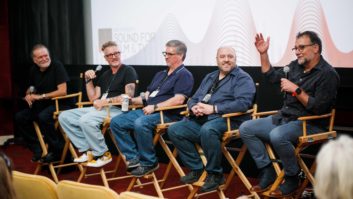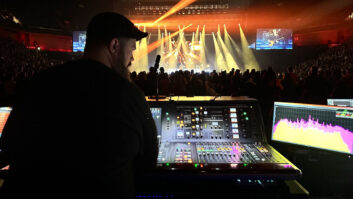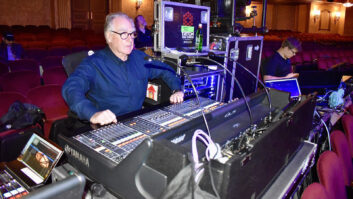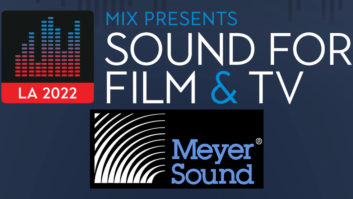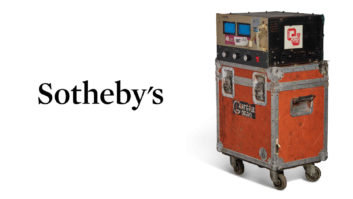This wasn’t exactly a Mix-type question, but as along-time Randy Bachman fan, I wanted to know more about how he getshis signature guitar sound. Fortunately, he’s a nice guy and wasmore than willing to spend a few minutes talking (guitar) shop.
Mix: So what’s the secret to the Randy Bachman guitarsound?
Bachman: “Part of it comes from the fact thatfrom the age of five to 14, I grew up playing violin. Then I discoveredguitar and saw Elvis on TV. Seeing Elvis was a revolutionarything—as was TV at that time—and I knew I wanted to playguitar. I took lessons from a guy named Lenny Breau (www.guitarchives.com), who taught me every ChetAtkins lick from the late-50s, when Chet was in his peak. I learnedMerle Travis and Les Paul and jazz before I went into rock androll.
“But when I wanted to play a rock solo, I played like it wasviolin—very slow, like the old Eric Clapton slowhand. Then Ideveloped this thing called the Herzog—which has now beenreissued by Tech-21 as the American Woman footpedal—and it got methe sound of a cello. I never wanted my guitar to sound like aguitar—I always wanted it to sound like a viola or cello. Thatended up being my solo sound on ‘American Woman,’ ‘No Time’ and a lotof the BTO tracks. When you’re playing violin (especially in a duetwith a piano) you’re mostly playing melody lines—essentiallyleads all the time.
“Violin is mostly slow, melodic stuff. So my guitar solos tendto be smooth, slow lines. Maybe my left-hand vibrato is like thevibrato I learned to play on violin—it’s nothing like guitarvibrato at all. Most of my solos start out with what people call that’American Woman’ tone. It sounds like a woman singing, like EricClapton on [Cream’s] ‘I Feel Free.’ At the end of the solo, I usuallyslip into my treble (bridge) pickup for the higher notes and the morecutting, busy end of the solo, like on some of my signature solos on’Roll on Down the Highway’ or ‘You Ain’t Seen Nothin’Yet’.”
Mix: Who were some of your other guitarinfluences?
Bachman: “Neil Young—who also grew up inWinnipeg—and I both grew up influenced by Hank Marvin of TheShadows in England. Hank played with an Echoplex and used the wang barall the time. That causes you to play slower, letting the wang bar domost of the work, rather than you left or right hand. Neil Young can doa solo with one note but it sounds like a guy going nuts, because he’sgoing nuts on the Bigsby tremolo on his old black Les Paul. I do asimilar thing sometimes.”
Mix: Do you have a favorite amp these days?
Bachman: “I’ve been using the JohnsonMillennium amplifier a lot—it was one of the first modeling amps.In 1999, I was getting back together with the Guess Who, I was lookingfor something that could create all my vintage sounds and BurtonCummings asked me to do some of my ‘70s BTO sounds. I neededsomething with real 12AX7 tube warmth but had lots of effects, like thesound of playing through a Leslie and Echoplexes and stuff. I have aJohnson combo and a 200-watt head, and it has a MIDI dump, so I cancopy all my settings and put them into any Millennium anywhere andinstantly have the exact tremolo and ‘verb I used on [the GuessWho’s] ‘Clap for the Wolfman’ or the exact sound and studioeffects from ‘American Woman’—and the footpedal displays thetitle of each tune. Onstage with the Guess Who, I don’t even need tochange guitars. It’s an incredible amp and and it has XLR outputs, sowhen onstage you don’t have to mic the amp: Every FOH engineer I’veworked with has said that the guitar sounds perfectly sweet out in thehouse.
“When recording, I often use that original [Line-6] Pod goingdirect. Between it and the Johnson head, I can get almost everything Iwant. These days, I can do most sessions with just a worked-overTelecaster, my Les Paul and the Pod.”
Mix: What’s your overall guitarphilosophy?
Bachman: “The sound comes when your heart andyour mind say what you want to say at that time. I grew up listening toa lot of great players, like Chuck Berry playing those great solos.Every Beatles solo might not have had the best guitar playing in theworld, but they were the best solos for those songs. They put whatreally enhanced and fit each song, and were different, and so melodicthat you could sing every guitar solo. That’s another thing I learnedfrom Lenny Breau: If you sing it in your head first, and figure it outon the neck of the guitar, then people will be able to sing along withit. Everybody can sing every one of Santana’s guitar lines in ‘Smooth.’People don’t want to buy stuff that they can’t sing to.”
For more info about Randy Bachman, visit www.randybachman.com
